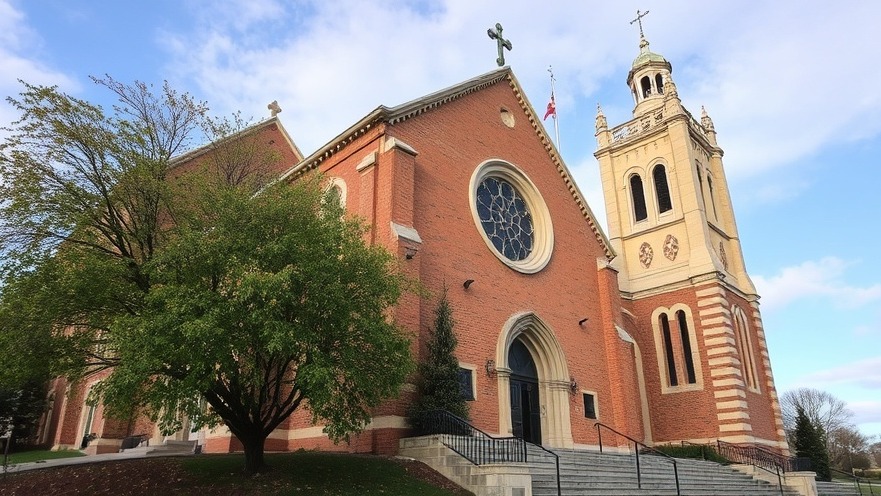
The New IRS Policy: Political Engagement from the Pulpit
In a landmark move, the Internal Revenue Service (IRS) has lifted restrictions on churches endorsing political candidates, thereby changing the landscape of spiritual leadership and civic engagement across the country. This decision could have profound implications, particularly in Texas, where more than 200 megachurches thrive and pastors hold significant sway over their congregations. Texas Representative Nate Schatzline is one of many who see this as an opportunity to amplify religious voices in political debates, a sentiment echoed by other religious leaders across the Lone Star state.
The Historical Context of Political Endorsements by Churches
For over seven decades, churches in the United States have been restricted from engaging in political activities due to the Johnson Amendment, a tax regulation introduced in 1954. The intention behind this provision was to ensure that religious organizations do not leverage their tax-exempt status for political gain. However, the recent IRS announcement could test the boundaries of this law, especially since it empowers pastors to publicly endorse candidates without fear of losing their tax-exempt status. As such, Texas stands at the precipice of a significant cultural shift where faith and politics intersect more openly.
Texas as a Testing Ground for New Political Dynamics
Schatzline's enthusiasm for this policy reflects a broader sentiment among Texas clergy. As the epicenter for megachurches, Texas provides a fertile ground for pastors eager to exercise newfound political influence. Experts such as Ryan Burge from Washington University believe that the state's political landscape will likely experience an upsurge in religious engagement, making it a focal point for evaluating how churches wield their voices in political matters. This new dynamic raises questions about the role of faith in public life and how it can bolster or complicate candidate campaigns in upcoming elections.
The Call for Pastors to Assume More Responsibilities
With this policy shift, pastors like Schatzline feel a moral obligation to speak up on political issues. During a gathering of conservatives in Fort Worth, he urged fellow ministers to use their platforms for advocacy. “There’s no reason that a politician should be more vocal about social issues than your pastor,” he asserted, highlighting an expectation among congregants for their spiritual leaders to guide them on critical social issues. This expectation could lead to a more engaged and politically active religious community that influences local and state elections significantly.
The Broader Implications for Texas and Beyond
As pastors mobilize to take advantage of this new IRS policy, the question becomes: What does this mean for the future of Texas politics and society? This shift may not only set a precedent for other states but could also rekindle the debate surrounding the separation of church and state. Americans have long grappled with these crucial boundaries, and as religious leaders enter the political fray, they may provoke a spectrum of responses from voters who see this as either a necessary evolution or a troubling intertwining of faith and politics.
A New Era of Civic Engagement
The IRS's recent policy change has opened a door for religious leaders to engage more directly with political candidate endorsements. While this could energize certain demographics within Texas, it also poses challenges related to maintaining an appropriate balance between religious influence and political neutrality. As society watches closely, the Lone Star State may serve as a case study for how this newfound alignment of faith and politics plays out. With the next electoral cycle approaching, it will be fascinating to observe how churches leverage their influence and whether they can galvanize voters in unprecedented ways.
This new avenue not only shapes the current political landscape in Texas but also leaves an indelible mark on the future of church-political relations nationwide. As congregations begin to navigate their roles, both leaders and followers must contemplate the ethical implications of these endorsements and what they mean for the integrity of religious institutions moving forward.
 Add Element
Add Element  Add Row
Add Row 



Write A Comment